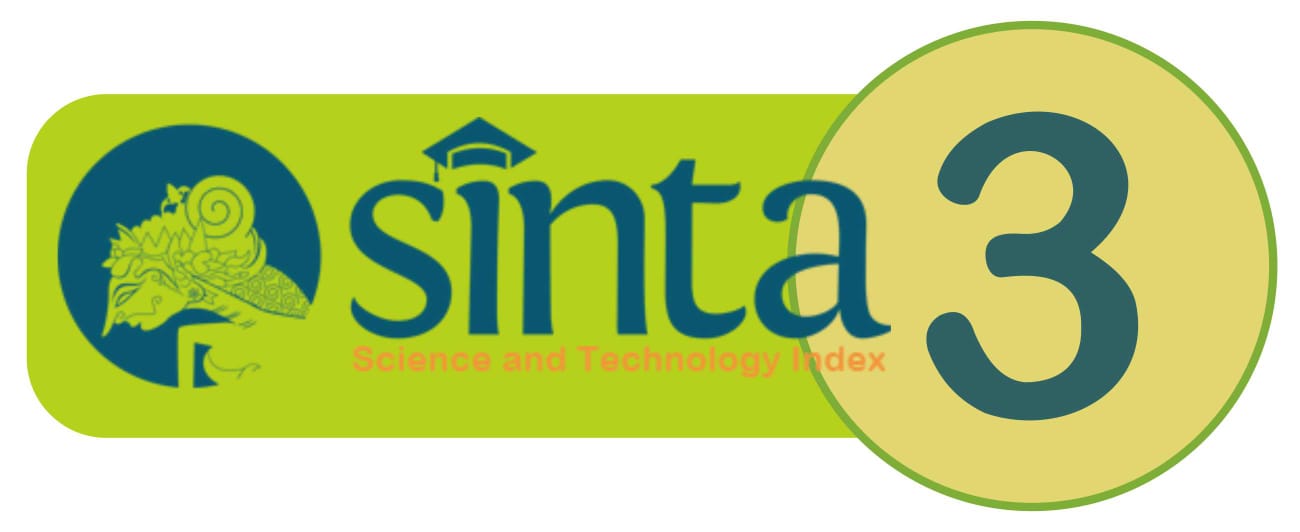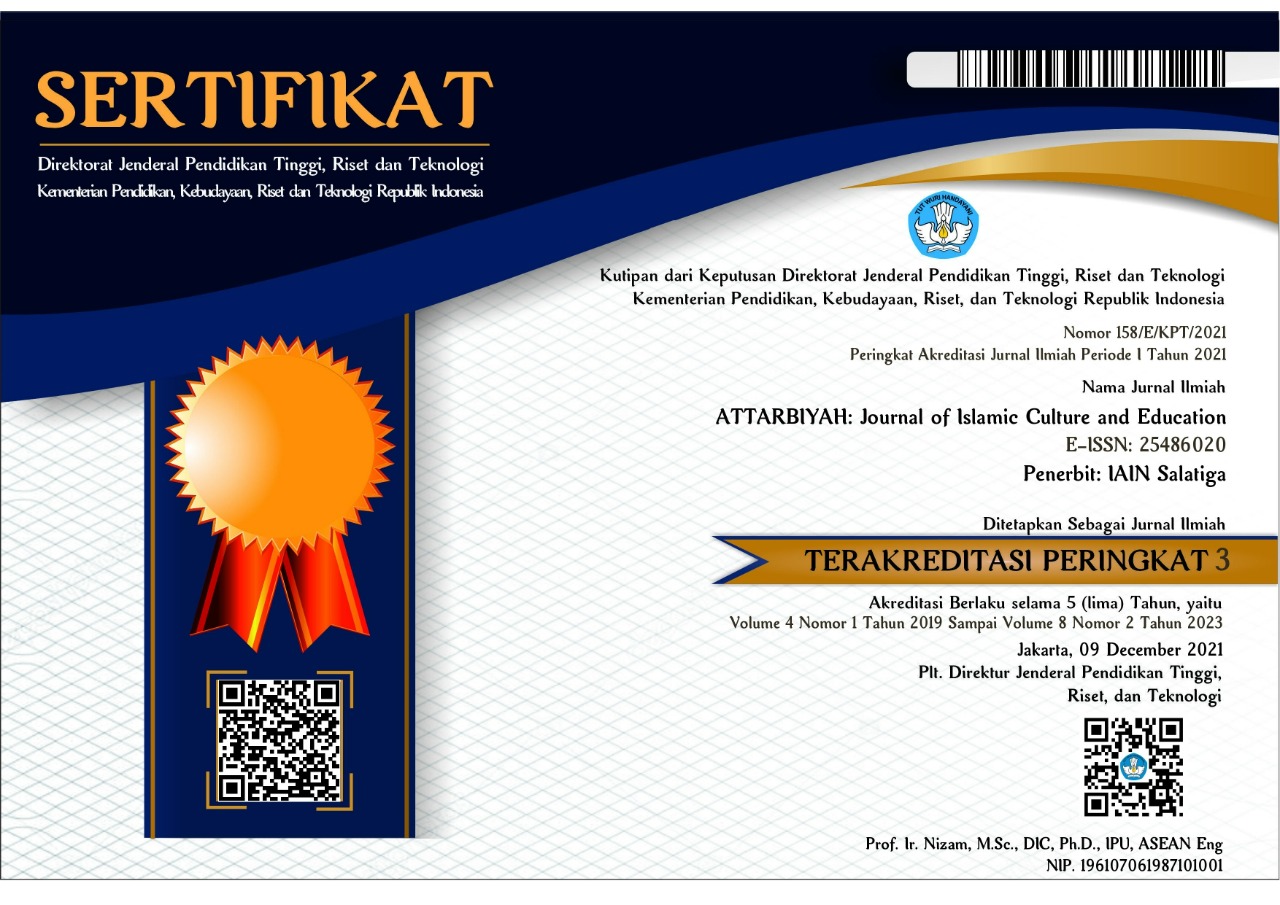Abul Kalam Azad’s thought of inclusive theology and education for religious pluralism
Abstract
This article sheds light on Maulana Abul Kalam Azad’s ideas of inclusive theology in his phenomenal work, Tarjuman al-Qur’an, especially his commentary on surah al-fatihah. It is also aimed to describe its significance as education for religious pluralism in India in particular and in global world in general. Azad’s inclusive theology can be analyzed from his understanding on the concept of God, religion and unity of religion. This study mainly uses hermeneutical and philosophico-theological approach because inclusivism can be dealt with in philosophy, especially philosophy of religion. The finding is that God as the “cherisher” and “flourisher” (rabb) transcends all fragmentations and divisions of humanity in race, color, and religion. The path of universal God (rabb al-‘alāmīn) is “the right path” (sirāt al-mustaqīm) which belongs to no particular religion. For Azad, all religions in origin contain the truth and are pervaded with the same spirit the existing and variations in religions do not affect the essentials of religion. The outward path (shari’a, minhāj) may vary according to the circumstances. The difference between one religion and another are not differences in dīn, the basic provision, but in the manner of giving effect to it.
Keywords
Full Text:
PDFReferences
Agrawal, L. M. G. (2008). Freedom fighters of India. New Delhi: ISHA Books.
Asghar, A. E. (1995). Lifting the Veil: Contemporary India. New Delhi: Sangam Books.
Asghar, A. E. (2011). Maulana Abul Kalam Azad: his Passion for Freedom and Communal Harmony, article presented at Secular Perspective, 16-30.
Azad, M. A. K. (1965). Tarjuman al-Qur’an. vol.1: Surat al-Fatihah. ed. & trans. By Syed Abdul Latif. Bombay: Asia Publishing House.
Azad, M. A. K. (1988). India Wins Freedom. New Delhi: Orient Longman.
Johanbegloo, R. (2016). “Gandhi and Islam: Their History and Implications for Canada Today.” in Gandhi in a Canadian Context: Relationships between Mahatma Gandhi and Canada. ed. Alex Damn, Canada: Wilfrid Laurier University.
Johanbegloo, R. (2018). “Peace and Non-Violence in Islam.” in The Routledge Handbook of Pacifism and Nonviolence. ed. Andrew Fiala. London: Routledge.
Jurji, E. J. (1969). Religious Pluralism and World Community. London: E.J. Brill.
Khan, R. (1992). “Portrait of Great Patriot: Maulana Abul Kalam Azad (1888-1958).” in Political Thinkers of India. vol.17, ed. Verinder Grover, New Delhi: Deep & Deep Publications. 208-209.
Malsiani, A. (1976). Abul Kalam Azad. New Delhi: Publications Division.
Malihabadi, A. R. (1958). Āzād Kı̇̄ Kahānı̇̄ Khud Āzād Kı̇̄ Zabūnı̇̄. New Delhi.
Miller. R. E. (1991). “Modern Indian Muslim Responses.” in Modern Indian Responses to Religious Pluralism. ed. Harold G. Coward. New Delhi: Sri Satguru Publication.
Nizami. K. A. (1989). Mawlānā Abu’l Kalām Azād and the Thirty Pages of the India Wins Freedom. New Delhi.
Nugroho, M. A. (2016). Urgensi dan Signifikansi Pendidikan Islam Multikultural terhadap Kompleksitas Keberagamaan Indonesia. Attarbiyah, Journal of Islamic Culture and Education, 1 (2), 179-210.
Panicker, P. L. J. (2006). Gandhi on Pluralism and Communalism. New Delhi: Indian Society for Promoting Christian Knowledge (ISPCK).
Rippin, A. (2005). Muslims: Their Religious Beliefs and Practices. London: Routledge.
Singh, N. K. (1969). God in Indian Islamic Theology. New Delhi: Sarup & Sons.
Stepanyants, M. (2010). The Philosophical and Socio-Political Views of Maulana Abul Kalam Azad. Russia Looks at India: a Spectrum of Philosophical Views. New Delhi: Indian Philosophical Research.
Tara, C. (1965). History of Freedom Movement in India. vol. 3. New Delhi: Publications Divisions, Ministry of Information and Broadcasting.
Tharoor, S. (2011). “The Man who Stayed Behind.” in The Elephant, The Tiger, and the Cellphone: India, the Emerging 21st-Century Power. New Delhi: Penguin Books India.
DOI: https://doi.org/10.18326/attarbiyah.v3i1.1-24
Refbacks
- There are currently no refbacks.

ATTARBIYAH: Journal of Islamic Culture and Education by http://attarbiyah.iainsalatiga.ac.id/ is licensed under a Creative Commons Attribution-ShareAlike 4.0 International License
----------------------------------------------------------
ATTARBIYAH : Journal of Islamic Culture and Education IAIN SALATIGA p-ISSN: 0215-9996, e-ISSN: 2548-6020



